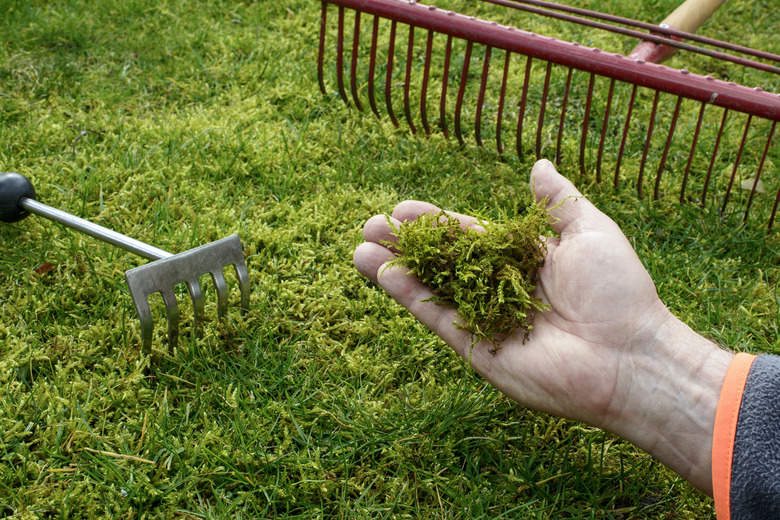What Does Lime Kill?
We may receive a commission on purchases made from links.
Lime is a naturally obtained mineral that has been used in agriculture and gardening for centuries. It's mainly used to raise the soil pH if it's too acidic to foster adequate plant growth and nutrient absorption. Lime has several other uses and applications, though. It can be used to help control or kill a range of weed, disease, and animal pests.
Tip
Lime is typically used in landscaping to treat acidic soil, but it can also help prevent weeds and moss or kill disease pathogens and insect pests.
In Your Lawn
In Your Lawn
A sign of acidic soil in your lawn is a heavy growth of moss and weeds. High soil acidity doesn't provide ideal growing conditions for grass. It can cause deficiencies in essential nutrients and allow moss and weeds to thrive since the grass isn't strong and healthy.
Using lime in the lawns can help to control moss, especially in shady areas where it's prone to appear. Contrary to popular belief, lime doesn't kill moss, but instead it alters the pH of the soil in such a way as to make it an inhospitable environment for moss development and growth. Lime can raise the pH of the soil to help encourage the grass to thrive better and out-compete moss. Before using lime to treat moss, use a soil test to check the pH to make sure it needs to be adjusted.
For Aquatic Applications
For Aquatic Applications
Lime can be used in ponds for sterilization. When applied at proper levels, the lime will kill many disease pathogens and pests in the water. This should be done after ponds have been drained and prior to refilling.
Liming in ponds can also help both plant and fish life, thereby discouraging other unwanted pests. Raising the pH in ponds has much the same effect as in lawns. Nutrients become more available to plant life, which provides the fish with more food. Levels should be monitored to make sure you don't create an imbalance.
Disease Control Uses
Disease Control Uses
When lime is combined with sulfur by boiling the two together, the resulting lime-sulfur spray can be used effectively as a fungicide to kill or control diseases, such as blight anthracnose and powdery mildew. Lime combined with copper sulfate, commonly known as Bordeaux mix, is used to kill or control diseases such as downy mildew, bacterial leaf spots, anthracnose, and cankers on trees and shrubs. Both lime-sulfur spray and Bordeaux mix are commonly used on fruit and food bearing crops due to their naturally derived ingredients.
Insect or Pest Control
Insect or Pest Control
Both Bordeaux mix and lime-sulfur spray have insect control properties to them as well. Bordeaux mix doesn't necessarily kill any insects, but it can be effective in repelling many insect pests on plants. Caution should be exercised when using Bordeaux, as it can burn plant leaves due to its copper component if used on a cloudy, cool, or wet day. Lime-sulfur sprays can be used to kill some insect pests. Scales, mites, and thrips can be controlled by using lime-sulfur spray. Care should be taken not to apply when temperatures exceed 80 degrees Fahrenheit, as the sulfur in the spray can burn plant foliage.
